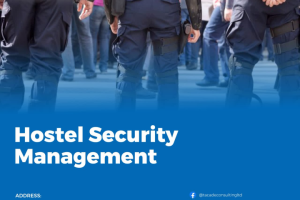
Who is a seasoned Facility Manager?
A facility manager is a professional responsible for the overall maintenance and management of a building, property, or facility. They oversee various aspects of facility operations, including maintenance and repairs, security, safety, space allocation, and budget management. Their primary goal is to ensure that the facility operates efficiently and effectively, meets the needs of its occupants, and complies with relevant regulations and standards.
The roles and responsibilities of a facility manager may vary depending on the size and type of facility they manage. However, here are some common roles:
1. Maintenance and Repairs: Facility managers are responsible for ensuring that the building or facility is well-maintained and meets safety standards. They oversee maintenance tasks, repairs, and coordinate with contractors and vendors.
2. Space Management: Facility managers allocate and manage space within a facility, ensuring optimal utilization of available space. They handle moves, changes, and office layout configurations.
3. Budgeting and Financial Management: Facility managers develop and maintain budgets for the facility, including operational expenses, maintenance costs, and capital expenditures. They track and manage expenditures, negotiate with vendors, and look for cost-saving opportunities.
4. Health and Safety Compliance: Facility managers ensure that the facility complies with health and safety regulations. They implement safety programs, conduct inspections, and address potential hazards or risks.
5. Security: Facility managers are responsible for the security of the facility and its occupants. They implement security measures, such as access control systems, surveillance systems, and emergency response plans.
6. Sustainability and Energy Management: Facility managers promote and implement sustainable practices within the facility, such as energy-efficient measures, waste management, and water conservation.
7. Vendor and Contractor Management: Facility managers coordinate with external vendors, contractors, and service providers for various services like cleaning, landscaping, maintenance, and repairs. They evaluate vendors, negotiate contracts, and ensure quality service delivery.
8. Emergency Preparedness: Facility managers develop and implement emergency response plans to handle situations such as fires, natural disasters, or other emergencies. They conduct drills, train staff, and ensure that necessary safety equipment and systems are in place.
9. Communication and Stakeholder Management: Facility managers act as a liaison between facility users, management, and other stakeholders. They communicate facility updates, resolve issues, and address concerns or requests.
These roles may overlap or vary depending on the specific requirements of the facility and the organization.





